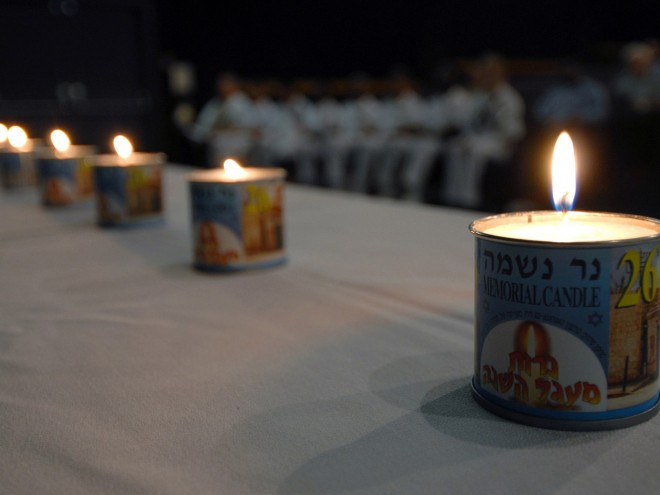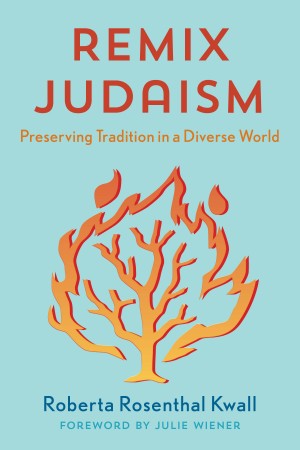Earlier this week, Roberta Rosenthal Kwall wrote about how on how pluralism strengthens Judaism and shared the backstory behind her newest book, The Myth of the Cultural Jew: Culture and Law in Jewish Tradition. Roberta is the Raymond P. Niro Professor of Law at DePaul University College of Law. She has been blogging here all week for Jewish Book Council’s Visiting Scribe series.
 In the United States, and even in Israel, Judaism cannot be a one-size-fits-all religion. The degree of variations that currently exist simply cannot be undone, nor should they be. But all variations need to be more attuned to their target audience and how they can best serve the needs of their constituents. This requires understanding the realities of the larger societal culture and tailoring Jewish experience to serve these realities. And it requires being open to trying new and different ways of reaching potential followers, including non-Jews who are involved with Jews or otherwise open to learning about the beauty of the tradition.
In the United States, and even in Israel, Judaism cannot be a one-size-fits-all religion. The degree of variations that currently exist simply cannot be undone, nor should they be. But all variations need to be more attuned to their target audience and how they can best serve the needs of their constituents. This requires understanding the realities of the larger societal culture and tailoring Jewish experience to serve these realities. And it requires being open to trying new and different ways of reaching potential followers, including non-Jews who are involved with Jews or otherwise open to learning about the beauty of the tradition.
Although the Jewish tradition includes both Jewish religious law, known as halakhah, as well as cultural elements, many modern Jews very much enjoy the cultural components of Judaism but are not so keen on the law part. This is particularly true when the legal demands are seen as placing burdens on people that are perceived as irrelevant to our modern lifestyle. That said, when the legal ingredients are completely lost, it is impossible to capture, and to pass down, the flavor and uniqueness of the traditional recipe.
More effective educational strategies are needed in most Jewish communities, particularly those in which the observance of halakhah is not a governing focus. I offer here two possible suggestions for further contemplation. One suggestion is to emphasize more how the demands of traditional Jewish practice comport with modern values that many Jews today embrace. For example, the culture of the twenty-first century furnishes appealing reasons to observe cornerstone traditions such as the dietary laws and Shabbat. Today, more kosher food options exist than ever before and there is a popular perception that these options are healthier. It has even been reported that more Millennials are keeping kosher than their baby boomer parents given their concern with environment and sustainability. As for Shabbat, in this day and age of continuous electronic connection, a mandated disconnection of one day a week can be seen as a welcomed relief.
A second suggestion focuses on unbundling the concept of “Jewish pride.” It seems to me that there is significant potential to harness the concept of “Jewish pride” so that it can serve as a focal point for educating American Jews. According to the 2013 Pew Report, a comprehensive study of the American Jewish population, 94% of the American Jewish population claimed that they are proud to be Jewish. Jewish pride and Jewish survival go hand in hand because people want to insure continuity of what they take pride in.
It is imperative that Jewish clergy and professionals develop an innovative yet effective strategy for educating this group, particularly those individuals who claim pride in their heritage but who are not religiously observant. Initially, such a strategy must underscore why religious tradition is indeed a fundamental part of what they are claiming a sense of pride in. But this is not sufficient because the needed education must also instill a love of the tradition’s beauty — both the legal and the cultural. It must persuade people that the Jewish tradition still has relevance for their lives, even if they are not living lives that are governed by Jewish law. In short, identified Jews are educable Jews. We have the numbers but now we need to develop the blueprint.
Roberta Rosenthal Kwall earned her law degree from the University of Pennsylvania and received her undergraduate degree from Brown University. Currently she is completing a Master’s Degree in Jewish Studies. For more reflections from Kwall, visit her Facebook page here.
Related Content:
- Reading List: Shabbat
- Essays: The Jewish Community and the Future
- Curated Reading Lists
Roberta Rosenthal Kwall is the Raymond P. Niro Professor at DePaul Law School. A prolific scholar whose work focuses on Jewish law and culture, Kwall lectures widely at synagogues, Jewish organizations, and law schools in America and Israel. Her popular writings on topics of relevance to the Jewish community have appeared in many of the most established Jewish media venues.



